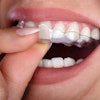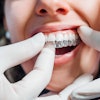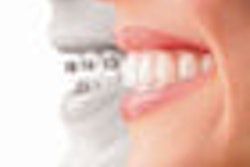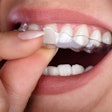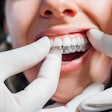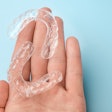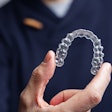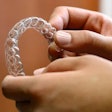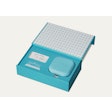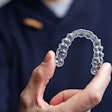Rinsing with a low-dose chlorhexidine solution is not necessary for patients undergoing Invisalign treatment, according to a new study in the Journal of Orofacial Orthopedics (November 2010, Vol. 71:6, pp. 430-441).
Researchers from the University of Cologne Department of Orthodontics wanted to investigate how halitosis, oral dryness, and general oral health were impacted during treatment with Invisalign.
After dividing 31 patients with good periodontal health into two groups, they recorded six parameters during the first eight months of Invisalign treatment:
- Stimulated saliva flow rate
- Organoleptic index
- Tongue coating index
- Measurement of the oral volatile sulfur compound level
- Modified gingival and plaque index
- Bleeding on probing index
Professional oral cleaning was performed at the beginning of each three-month period, and the patients filled out questionnaires at the first, third, fourth, sixth, and eighth control visits.
The researchers did not observe any halitosis, oral dryness, or high plaque or gingival index measurements in either patient group. Oral health-related quality of life was hardly influenced by wearing aligners, and oral hygiene habits were very good, they noted.
"This study provides evidence that Invisalign treatment is characterized by only minimal impairment of overall oral health and the associated quality of life," the researchers concluded. "Consequently, it appears unnecessary to recommend the general adjunctive use of a low-dose chlorhexidine mouthwash during treatment with Invisalign."
Copyright © 2010 DrBicuspid.com
